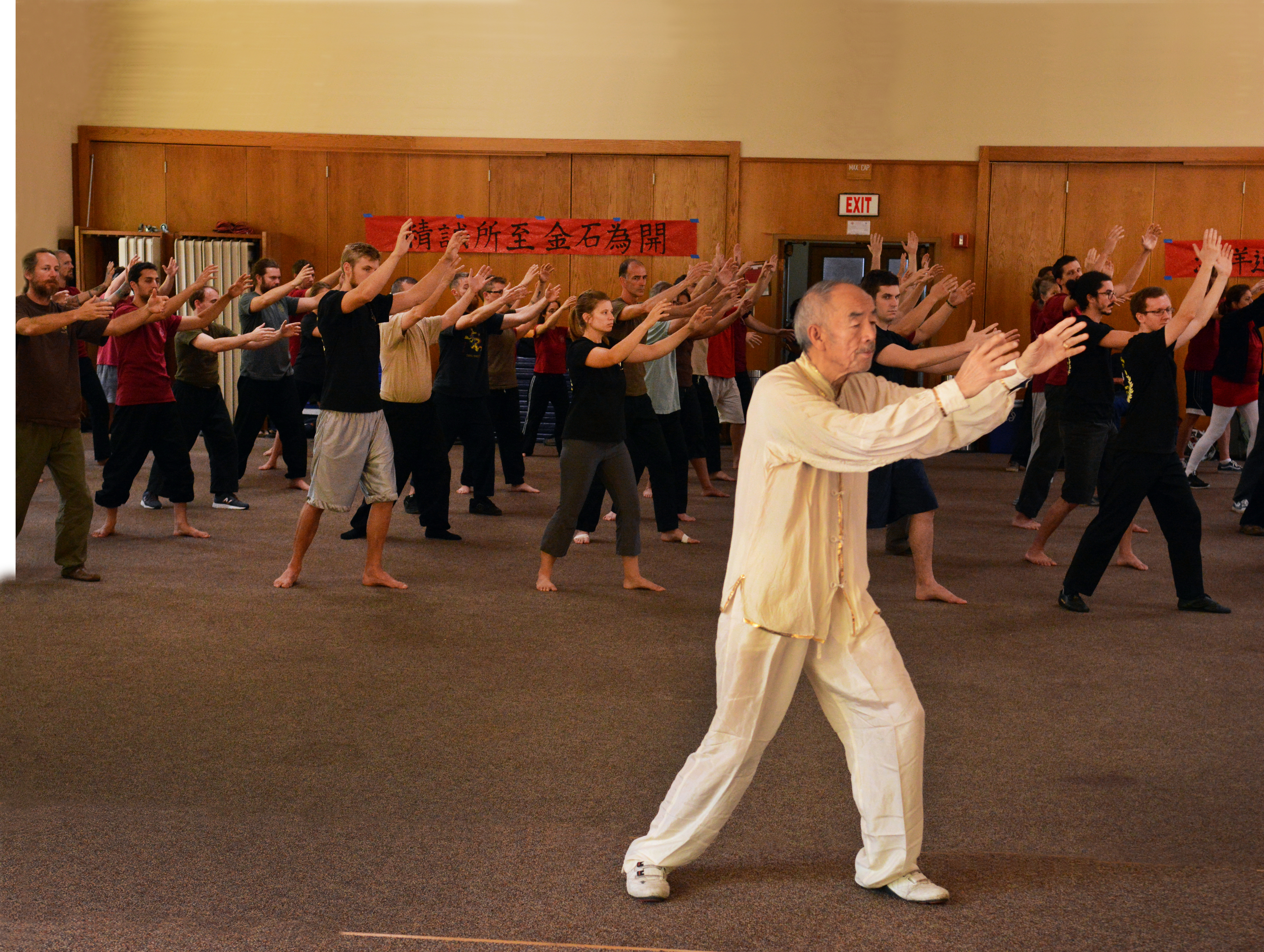Sally Reeves, Tucson AZ
John Upledger, the founder of modern-day CranioSacral therapy, told Vince Black, “Don’t forget about the vets.” There are countless veterans who are grateful that Vince Black took this advice to heart and passed it onto his students in the North American Tang Shou Tao Association.
Around five years ago, Renee Stucklen brought Wang Jiwu’s Longevity Exercises to the Southern Arizona Veterans Affairs (VA) Health Care System. After several years of teaching classes at the Tucson VA Hospital, Renee began working with veterans in class who wanted to become teachers. Since that time, Wang Jiwu classes have expanded into other parts of the hospital and Community Based Outreach Clinics (CBOC). There are now five qigong classes a week at Tucson VA facilities, including an all women’s class at the VA Women’s Health Center, a coed class at the Northwest CBOC, and three coed classes taught at the VA hospital. There is limited space at some of the facilities so the number of veterans who can attend a class is limited. There are some weeks where veterans are turned away and have to sign up for future classes.
Nationally, there are nineteen Veterans Integrated Service Networks (VISN) and Tucson is in VISN 22, which includes Southern California, Arizona and New Mexico. Because of the success of the qigong program at the Tucson VA, the regional director of VISN 22, Mr. Fischer, wanted to learn more about the program and why veterans wanted to volunteer to teach qigong to other veterans. Renee was interviewed for a video to give a background of the reasons the association brought qigong to the VA. The veteran volunteers were also interviewed and a video was taken of veterans participating in Wang Jiwu classes. This was all edited down to a six-and-and-half-minute video about the qigong program and sent to Mr. Fischer to share with other VISN directors.
The Health Promotion Disease Prevention Whole Health Program Manager, Sheila Sedig, has asked Medical Media for a longer version of the video. She hopes to have it posted on the Southern Arizona VA Health Care System website under their resources tab as a resource for veterans. This will be another way to reach more veterans and get them interested in attending qigong classes at the VA.
The VA has recently switched over to the Whole Health Model of care. Rather than continuing to treat chronic disease, they want to get ahead of the problem and help veterans use their strengths to self-manage their health and prevent disease. The Whole Health Model believes the body can heal itself. Using the mind and body connection and providing classes, including qigong, serve as additional ways for self-directed care to empower veterans in their journey towards health.
There are countless testimonies from veterans who have been taking the qigong classes that are demonstrating the fact that qigong can play an important role in improving the health of veterans.
James has been taking classes for a year. He no longer uses a cane. His doctor noticed his improved posture and lessened pain and asked James what he was doing. James told his doctor about qigong. His doctor then told James to keep doing qigong!
Frank was in an accident that left him with only five percent mobility. He’s been coming to classes for years and has increased his mobility to over 35 percent.
Gerry started classes in a wheelchair. There are days when he walks behind his wheelchair rather than having someone push him. He can now stand during some of the exercises.
Roger has noticed increased balance and better mobility. He has neuropathy in his feet and can now balance on one foot at a time, something he hasn’t been able to do in years.
If you are interested in starting a qigong program at a VA facility in your area, the first step would be to call the Voluntary Services Department and ask them if they have a Whole Health Program manager or a Health Promotion, Disease Prevention Program manager. Then schedule a meeting with that manager and let them know how qigong could fit into their program. If you aren’t near a VA hospital, check to see if you have a CBOC. They are often more receptive to offering new programs to veterans.
There are also Vet Centers organized within the Department of Veterans Affairs offering Readjustment Counseling Services. They provide counseling for veterans who served in combat theaters and those who experienced sexual trauma while on active duty. Vet Centers provide services to veterans to facilitate a successful readjustment to civilian life. If there is limited space for qigong classes at a CBOC, you may be able to work with a Vet Center as they often have classroom space that could be utilized.
There is a national mandate that VA facilities offer some level of Whole Health. I see this as an opportunity for the North American Tang Shou Tao family to expand qigong classes for veterans and carry on Vince Black’s vision to help veterans.


